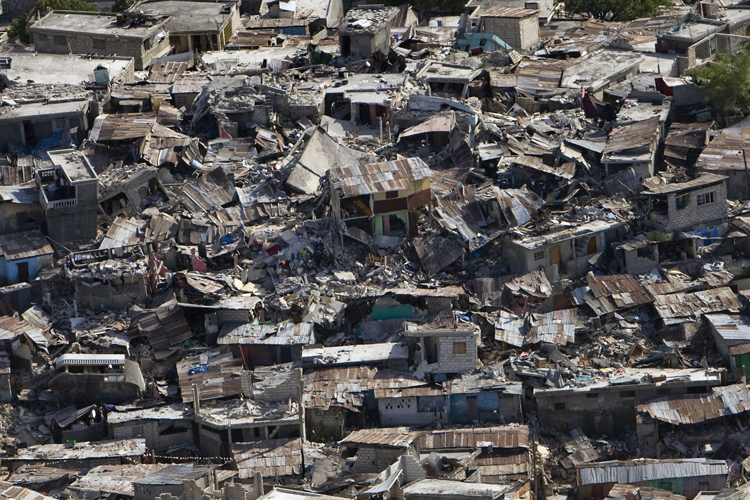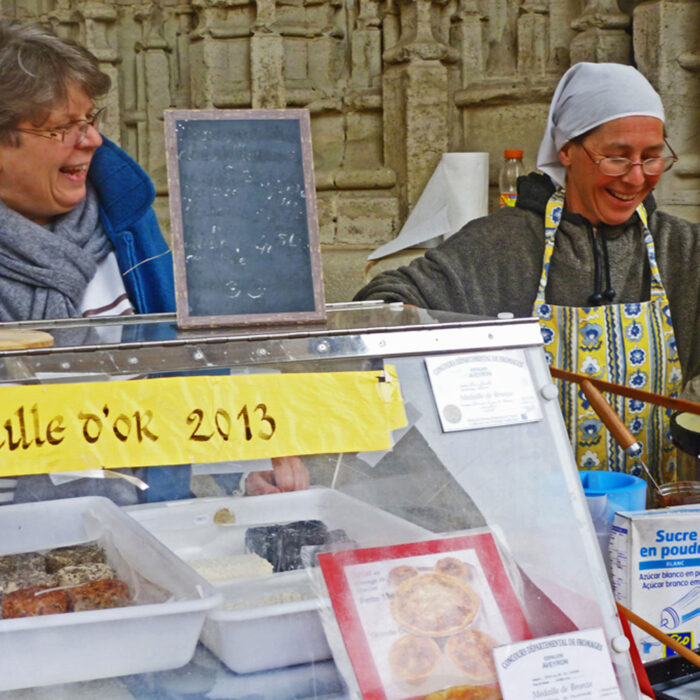You have no items in your cart. Want to get some nice things?
Go shoppingIntroduction by translator Sophie Lewis
January 23, 2010—Dany Laferrière is in Haiti for the literary festival Etonnants Voyageurs. Like so many others, he is caught in the earthquake. Unlike many, he escapes the catastrophe unscathed. A year later, in Tout bouge autour de moi (Everything around me is shaking), he writes of what he saw that day and again, some weeks later when he returned to Haiti: sights that speak of horror but also of the Haitians’ remarkable sangfroid. Laferrière retells the story of the quake through his own impressions and view of the events. He counters the sensationalism and melodrama of Occidental television coverage with a sober, powerful account of this crisis whose repercussions continue to be felt worldwide. Tout bouge autour de moi is not merely a piece of testimony; it is a work of true literature.

The Minute
There I am in the restaurant of Hotel Karibe with my friend Rodney Saint-Eloi, publisher of Mémoire d’encrier (Memory of an Inkpot), who has just come in from Montreal. Leaning against our table-legs were two fat suitcases filled with his latest books. I was waiting for my crayfish (on the menu it said lobster) and Saint-Eloi for a salt-baked sole. I had already started on the bread when I heard a terrible explosion. At first I thought it was a machine-gun (others will say a train), right behind me. Seeing the cooks fly past us, I thought that a boiler had just exploded. All this took less than a minute. We had eight to ten seconds in which to make a decision. Get out of the place or stay. Those who split swiftly were very few. Even the sharpest lost three or four precious seconds before they realised what was happening. I was in the hotel restaurant with friends, the publisher Rodney Saint-Eloi and the critic Thomas Spear. Spear lost three precious seconds because he wanted to finish his beer. We don’t all react alike. In any case, no-one can foresee when death will be waiting for them. All three of us found ourselves flat on the floor, in the middle of the courtyard. Under the trees. The ground began to undulate like a slip of paper carried off in the wind. The thudding sounds of buildings falling to their knees. They don’t explode. They implode, imprisoning people in their bellies. Suddenly, we see a cloud of dust rise up into the afternoon sky. As if a professional dynamiter had received the express command to destroy the whole city without blocking the streets, to give the cranes easy access.
Life Already
Life had seemed to be returning to normal after decades of turbulence. Girls would stroll in the streets laughing, late into the evening. Primitive painters chatted to the mango- and avocado-sellers on the corners of dusty streets. Banditry seemed to be on the way out. In the rougher parts of town, such as Bel-Air, crime was no longer tolerated by the worn-out population, which had seen it all in the last half-century: hereditary dictatorships, military coups d’etat, cyclone after cyclone, devastating floods and stealth kidnappings. I was coming for this literary festival that was meant to bring writers to Port-au-Prince from all around the world. It promised to be exciting since, for the first time, literature seemed to have become the hot topic in town, more popular even than politics. Writers were being invited to speak on television more frequently than the MPs: a pretty rare thing in this highly politicised country. Literature was reclaiming its rightful place here. As early as 1929, Paul Morand noted in his perceptive essay Hiver caraïbe (Caribbean Winter) that in Haiti everything ends with a collection of poetry. Later on, during his last trip to Port-au-Prince in 1975, Malraux would talk about a population of painters. We are still trying to understand how such a concentration of artists could emerge in such a limited space. Haiti only takes up half of an island, which it shares with the Dominican Republic, in the Caribbean Sea.
The Silence
When I travel, I always keep two things with me: my passport (in a little bag hanging from my neck) and a black notebook in which I note down everything that crosses my field of vision or comes into my head. While I was lying on the ground, I was thinking about disaster movies, wondering if the earth was going to open and swallow us all. This was my childhood nightmare. We had retreated to the hotel’s tennis court. I was expecting to hear cries, people screaming. We say in Haiti that as long as there’s no screaming, there’s no death. Someone shouted that it wasn’t safe to stay under the trees. In fact they were wrong, for not a branch, not a flower shifted in spite of the forty-three seismic shocks of that first night. I can still hear that silence.
Projectiles
A shock of magnitude 7.3 is not so bad. You can still run away. Concrete was the real killer. People had gone to town with their concrete these last fifty years. Little fortresses. Being suppler, the houses made of wood and sheet metal had taken the stress. In the frequently tiny hotel bedrooms, the television became the enemy. We always sit down right in front of it. And it falls straight onto us. Lots of people had it fall on their heads.
The Ladder
We pick ourselves up slowly, like zombies in a B-movie. There are shouts in the hotel courtyard. The buildings to the back and right have crumbled. These are the apartments rented on an annual basis by foreign families, mostly French. Two teenage girls are panicking on a second-floor balcony. Very quickly, people start working out how to help them down. There are three of them there in front of the building. Two hold a ladder. The sharp young man who has had the presence of mind to go look for the ladder in the garden is climbing up it. The older of the girls manages to climb over the balcony’s edge. She reaches the ground. Everyone crowds around her. The young man climbs back up to get the younger one, who refuses to leave the place. She demands that they wait for her mother. This is the first we hear of a third person stuck up there. The rescuers work on in sweaty silence. They need to act fast, for the block, which is barely standing, could collapse with the slightest vibration. The teenager screams that her mother is inside. While looking for a stairway to get out by, the mother had got herself locked in somewhere. Weeping, the girl points to the spot where her mother is stuck. Standing in the hotel garden, we all have our eyes riveted on this teenager who believes that if she comes down we will forget her mother. There is enormous tension in the air, for the earth has only just finished shaking. Eventually, the mother frees herself by breaking a window. She rushes to her daughter who still refuses to come down before her. Only when her mother has reached the ground will she agree to come down the ladder.
A Small Party
A woman walks about with a crying baby. I take him in my arms and try to soothe him. He devours me with the black eyes of a frightened mouse. A gaze so sustained that he ends up intimidating me. The woman explains that she’s his nurse. His parents are at work. She had just given him a bath when the room started to rock. Thrown about all over the room, she never lets go of the baby. She tries to leave the building by the stairs. Blocked. She returns to the bedroom and this time manages to balance the baby on the window-ledge, before lowering herself onto the balcony on the next floor down. Then she climbs on a chair to pick up the infant who, miraculously, hasn’t moved, as if he understands the gravity of the situation. As soon as she had him in her arms again, he began to cry, as though he were being skinned alive, for the next two hours. Then his parents rushed in. I hardly dare to imagine their anguish during the journey. They left the car, doors wide, in the middle of the road. The nurse gave them the baby and they danced, with savage joy, holding him tightly between them. Another shock interrupted the little party.
The Hotel Employees
Always perfectly turned out in their uniforms, the hotel employees never lost their cool. If there was a certain amount of disorder at first, it emanated mainly from their guests who ran in all directions. Some had to be fetched, being unable to leave their rooms. They were found pacing round and round or sitting on their bed, eyes glazed. For a while I watch the employees work hard to carry out their assigned roles. It may be the fact of having a role to fulfil that allows them to walk straight while their guests totter. As soon as we are hungry they turn up, in single file, carrying canapés to lay out on a big table. A reception had been planned for the large meeting room, near the restaurant. The food had already been prepared. Now we take advantage of their organisation. The security guards stand close to the narrow barrier at the entry to the tennis court, where we have taken refuge. They do their best to reassure the guests. I say guests rather than tourists, for the latter are rare in Haiti. Only members of the many NGOs that have been festering in the country for the last few decades tend to be found here; tanned newspaper correspondents who can’t get away from the island, foreign businessmen muttering together over breakfast with Haitian politicians who are already sweating. We see the hotel owner go by in the garden, doing his tour of inspection. Pacing slowly, with a worried expression, he appears lost in his thoughts. I would give a lot to know what is going through his mind just then. The destruction is not only material. Some are seeing a lifetime’s hard work vanish in the space of a minute. That cloud in the sky a moment ago was the dust that remained of their dreams.
The Bathroom
I imagine the fright of those who were in the bath at the moment the quake’s first shocks struck. We were all taken by surprise, but those who were in the shower must have lived through a moment of pure panic. We always feel more vulnerable when we are naked, especially when covered in soapy water. In their hurry, a fair number of these people left without remembering to turn off the tap.
Things
The enemy is not time but all those things we accumulate from day to day. As soon as we pick up a thing, we can’t stop. For one thing demands another. It’s the cohesion of a life. We would find bodies near the door. A suitcase beside them.
This is an extract from Everything Around Me Is Shaking (Tout bouge autour de moi) by Dany Laferrière (2011, Grasset et Fasquelle). Translated by Sophie Lewis.
Born in 1953 in Port-au-Prince, Dany Laferrière first made his mark in 1985 with How to Make Love to a Negro Without Getting Tired (Comment faire l’amour avec un nègre sans se fatiguer). He has since published a number of novels in France and in Quebec, where he now lives.
Sophie Lewis specialises in translating short prose from French. Her forthcoming publications include Thérèse and Isabelle, a ground-breaking feminist novella by Violette Leduc, for Salammbô Press. She is currently working on Sans Dessus Dessous, a novel by Jules Verne, for Hesperus Press. She is also Contributing Editor at Litro and Editor at Large at And Other Stories.





